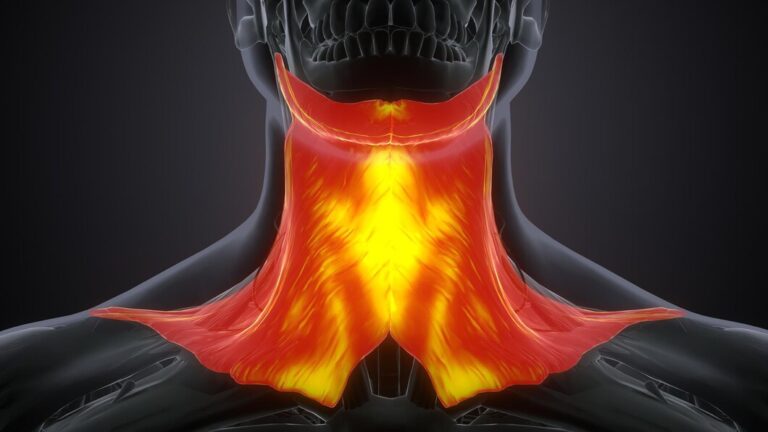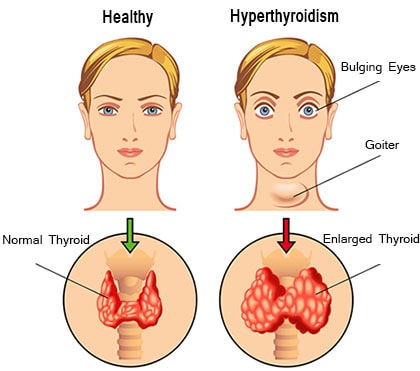Thyroid Function Explained: The Role Of Hormones In Hyperthyroidism
The thyroid gland, a small butterfly-shaped organ located in the front of the neck, plays a crucial role in regulating metabolism, growth, and energy expenditure. Central to its function are the thyroid hormones, thyroxine (T4) and triiodothyronine (T3), which exert widespread effects on virtually every tissue in the body. Hyperthyroidism, a condition characterized by excessive thyroid hormone production, disrupts this delicate balance, leading to a myriad of symptoms and complications. In this article, we will delve into the intricate mechanisms of thyroid function and explore how imbalances in hormone levels contribute to the development of hyperthyroidism.
The Thyroid Hormones: Thyroxine (T4) and Triiodothyronine (T3)
Thyroxine (T4) and triiodothyronine (T3) are synthesized by the thyroid gland in response to stimulation by thyroid-stimulating hormone (TSH) released from the pituitary gland. T4 is the predominant thyroid hormone secreted by the thyroid gland, while T3 is the biologically active form that exerts most of the physiological effects. However, T4 can be converted to T3 in peripheral tissues, enhancing its potency.
Regulation of Thyroid Hormone Secretion
Thyroid hormone secretion is tightly regulated by a feedback loop involving the hypothalamus, pituitary gland, and thyroid gland. The hypothalamus produces thyrotropin-releasing hormone (TRH), which stimulates the anterior pituitary gland to release TSH. TSH, in turn, acts on the thyroid gland to stimulate the synthesis and secretion of T4 and T3. Elevated levels of thyroid hormones inhibit the release of TRH and TSH, maintaining homeostasis.
Hyperthyroidism: Excessive Thyroid Hormone Production
Hyperthyroidism occurs when there is an overproduction of thyroid hormones, leading to a state of hypermetabolism and excessive stimulation of target tissues. The most common cause of hyperthyroidism is Graves’ disease, an autoimmune disorder characterized by the production of thyroid-stimulating immunoglobulins (TSI) that bind to and activate the TSH receptor on thyroid follicular cells. This results in unregulated thyroid hormone synthesis and secretion, as well as thyroid gland enlargement (goiter).
Other causes of hyperthyroidism include thyroid nodules or adenomas that autonomously produce thyroid hormones, thyroiditis (inflammation of the thyroid gland) resulting in the release of preformed thyroid hormones into circulation, and excessive iodine intake from dietary sources or medications.
The Impact of Excess Thyroid Hormones on the Body
Excess thyroid hormones exert profound effects on various organ systems throughout the body, resulting in a wide range of symptoms and clinical manifestations. These include:
- Increased Metabolic Rate: Elevated levels of thyroid hormones stimulate metabolism, leading to weight loss, heat intolerance, and increased sweating.
- Cardiovascular Effects: Hyperthyroidism can cause tachycardia (rapid heartbeat), palpitations, and arrhythmias, as well as hypertension and an increased risk of heart failure.
- Neuromuscular Symptoms: Patients with hyperthyroidism may experience tremors, muscle weakness, and hyperactivity.
- Gastrointestinal Disturbances: Symptoms such as diarrhea, increased appetite, and weight loss are common in hyperthyroidism.
- Psychological Effects: Hyperthyroidism can manifest with anxiety, irritability, insomnia, and mood swings.
- Ophthalmic Manifestations: Graves’ disease, the most common cause of hyperthyroidism, is often associated with ophthalmic complications such as proptosis (bulging eyes), lid lag, and diplopia (double vision).
Diagnosis and Management of Hyperthyroidism
The diagnosis of hyperthyroidism is based on clinical symptoms, physical examination findings, and laboratory tests, including measurement of serum TSH, free T4, and free T3 levels. Additional tests such as thyroid ultrasound, radioactive iodine uptake (RAIU) scan, and thyroid autoantibody assays may be indicated to determine the underlying cause of hyperthyroidism.
Treatment options for hyperthyroidism depend on the underlying etiology and severity of symptoms. Antithyroid medications such as methimazole and propylthiouracil (PTU) are commonly used to inhibit thyroid hormone synthesis. Radioactive iodine therapy (RAI) is another effective treatment modality that selectively destroys thyroid tissue, thereby reducing hormone production. In cases of severe or refractory hyperthyroidism, surgical removal of the thyroid gland (thyroidectomy) may be necessary.
Conclusion
Thyroid hormones play a central role in regulating metabolism, growth, and energy expenditure, with imbalances leading to a range of clinical manifestations. Hyperthyroidism, characterized by excessive thyroid hormone production, can have profound effects on virtually every organ system in the body. Understanding the intricate mechanisms of thyroid function and the pathophysiology of hyperthyroidism is essential for accurate diagnosis and effective management of this condition. Through a multidisciplinary approach involving endocrinologists, primary care physicians, and other healthcare providers, patients with hyperthyroidism can receive comprehensive care tailored to their individual needs, ultimately improving their quality of life and clinical outcomes.








